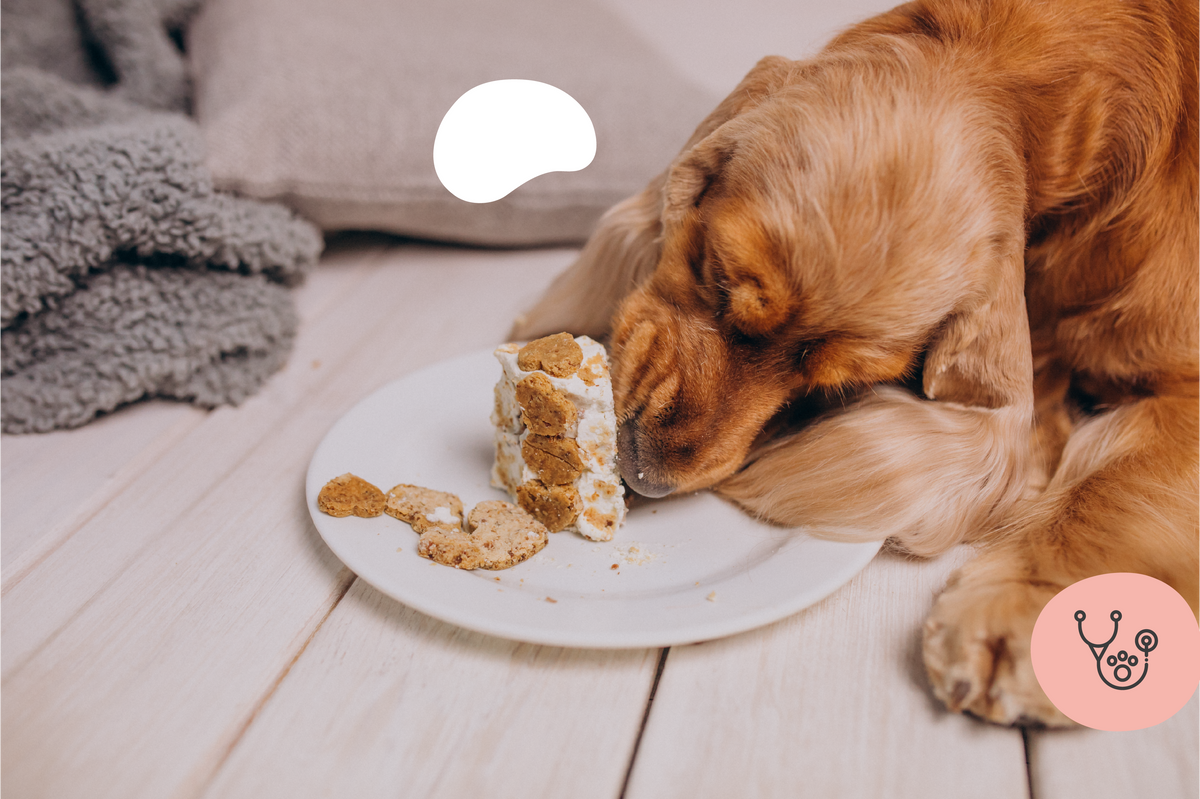What foods are dangerous and toxic for dogs?

Although your dog may love sharing your food with you, some foods can be very dangerous for his health. In this article, we'll take a look at 10 different foods that are toxic for dogs. We'll give you detailed information on each food and the symptoms of poisoning, so you can better protect your pet from food hazards.
10 toxic foods for your dog
1 The chocolate :
Chocolate contains theobromine, a substance similar to caffeine, which is toxic to dogs. The amount of theobromine varies according to the type of chocolate, with dark chocolate being the most dangerous, followed by milk chocolate and then white chocolate. Symptoms of chocolate poisoning can appear 6 to 12 hours after ingestion.
2 The grapes :
Grapes and sultanas can cause serious kidney problems in dogs. We therefore recommend that you avoid giving your dog grapes or sultanas altogether.
3 Onions :
Onions and garlic contain compounds that can damage red blood cells in dogs, leading to haemolytic anaemia. Raw onions are more toxic than cooked onions, but it's best to avoid giving your dog onions or garlic altogether.
4 Macadamia nuts :
Macadamia nuts are toxic to dogs and can cause vomiting, fever, hypothermia and even neurological problems. Symptoms can appear within 12 hours of ingestion and can last up to 48 hours. It's important to keep macadamia nuts out of your dog's reach.
5 Avocados :
Avocados contain a substance called persin, which can be toxic for dogs.
6 Dairy products :
Dogs are not designed to digest dairy products in the same way as humans. Dairy products can cause gastrointestinal problems such as vomiting and diarrhoea. Avoid giving your dog milk, cheese and other dairy products.
7 Caffeine :
Caffeine can also be very dangerous for dogs. Dogs metabolise caffeine more slowly than humans, which means that even small amounts can cause serious problems.
8 Fried and fatty foods :
Fried and fatty foods can be very dangerous for dogs. These foods are often high in fat and salt, which can cause serious health problems in dogs.
9 Synthetic sweeteners :
Synthetic sweeteners are commonly used in human foods, particularly in sugar-free drinks and chewing gums. Unfortunately, these sweeteners can be very dangerous for dogs. The most commonly used synthetic sweetener, xylitol, can cause a rapid increase in insulin in dogs, which can lead to a dangerous drop in blood sugar levels.
10 Alcohol :
Unlike human kidneys, dogs' kidneys don't have the capacity to eliminate alcohol, which can cause health problems. Fresh, clear water is best for your dog.
The consequences of food poisoning in dogs and symptoms to watch out for
Food poisoning in dogs can have serious, even fatal, consequences. The type and severity of symptoms depend on the food consumed, the amount ingested and the size and general health of the dog.
Symptoms of food poisoning
- Vomiting: One of the first signs of food poisoning in dogs is often repeated vomiting. If you notice your dog vomiting more than usual, this could be a sign of food poisoning.
- Diarrhoea: Diarrhoea is another common symptom. It may be accompanied by blood or mucus in the stools.
- Loss of appetite: An intoxicated dog may lose its appetite, even for its favourite foods.
- Lethargy: A dog that has been poisoned may appear unusually tired or weak. It may also have difficulty getting up or walking.
- Tremors or convulsions: Certain toxic foods, such as chocolate and caffeine, can cause tremors or convulsions in dogs.
- Rapid or difficult breathing: A dog that has difficulty breathing or breathes rapidly may have ingested a toxic food.
- Hyperactivity or agitation: In some cases, a dog may appear hyperactive or agitated after ingesting a toxic food.
- Increased thirst or urination: Certain toxic foods can cause increased thirst or urination in dogs.
The consequences of food poisoning
The long-term consequences of food poisoning depend on how quickly the dog receives veterinary care. In severe cases, food poisoning can lead to permanent damage to organs such as the kidneys and liver. In extreme cases, it can even be fatal.
If you suspect your dog has ingested a toxic food, it's vital to contact a vet immediately. The sooner treatment is administered, the better your dog's chances of recovery.
It's vital to be careful about the food we give our dogs, as some foods can be hazardous to their health. In this article, we have listed the 10 most toxic foods for dogs, describing the symptoms of poisoning and explaining why these foods are dangerous for them. The best thing to do is to avoid feeding your dog these foods altogether, and to consult a vet if you think your dog has eaten something toxic. Taking care of your pet also means paying attention to its diet. That's where Marly & Dan comes in, offering healthy, functional treats specially designed to combat your dog's minor digestive problems. Choose Marly & Dan for a healthy, balanced diet tailored to your dog's specific needs.



